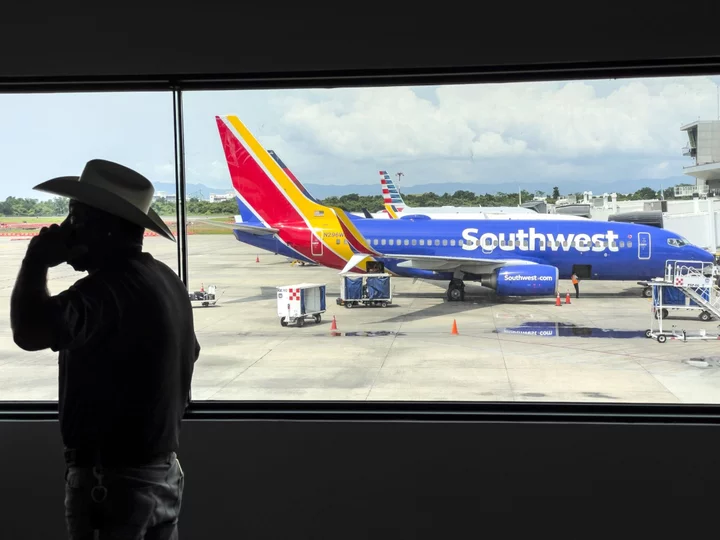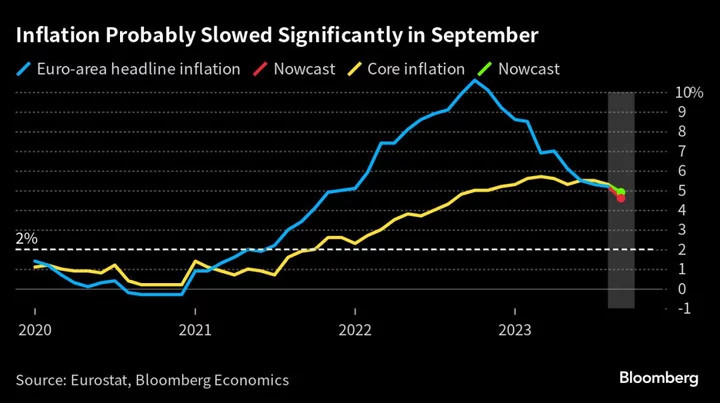UK opposition leader Keir Starmer suffered a major rebellion over his stance on the Israel-Hamas war, as more than 50 Labour lawmakers defied him by backing a rival party’s call for an immediate cease-fire in Gaza.
Internal divisions over the conflict have posed a serious challenge to Starmer, who has aligned with international calls for humanitarian “pauses” as he tries to present Labour as a government-in-waiting while distancing himself from anti-Semitism claims that dogged the party under predecessor Jeremy Corbyn.
But he’s faced intense pressure to go further and call for a full cease-fire. Labour tensions have been exacerbated by the electoral math: surveys show there are over 2 million eligible Muslim voters in the UK who are more likely to vote Labour than backing the governing Conservative Party.
So Wednesday’s push by the Scottish National Party, explicitly calling for a cease-fire, played directly into Starmer’s party management issues. His office warned his shadow ministerial team their jobs were at stake if they backed it. In the event, 10 were forced to leave their positions.
“I regret that some colleagues felt unable to support the position,” Starmer said after the vote. “But I wanted to be clear about where I stood, and where I will stand. Leadership is about doing the right thing.”
The rebellion cost Starmer significant political fire power, including shadow minister Jess Phillips. In her resignation letter, posted on X, she said: “I can see no route where the current military action does anything but put at risk the hope of peace and security for anyone in the region now and in the future.”
But resignations on a matter of conscience typically do not prevent future reinstatements, and the question facing Starmer is how lasting the political damage will be. Much will depend on events in the Middle East, given Labour’s internal tensions are unlikely to dissipate until the fighting stops.
The counter argument is that with Labour about 20 points ahead of the Tories before a general election expected next year, there is little sense that the current disagreements pose a direct threat to Starmer’s position at the top of the party. That points to how much power he has built up since 2021, when he was widely tipped to be ousted had Labour not narrowly held onto a parliamentary seat in the Batley and Spen by-election.
Shadow defense secretary John Healey said Labour frontbenchers who broke ranks on Gaza still want Starmer to become prime minister.
“This is a difficult issue that we faced last night but Keir Starmer was right, when it comes to a parliamentary vote, to be firm to require collective responsibility and discipline,” Healey told Times Radio on Thursday. “He was not going to change his principal position for the sake of internal party management, which we’ve seen time and time again with Rishi Sunak trying to control his own Conservative MPs.”
The splits among Sunak’s Tories, laid bare on Wednesday after the Supreme Court ruled against a key plank of the government’s immigration policy, will have helped limit the political damage to Starmer from the vote.
Still, Labour’s divisions are likely to continue to throw up uncomfortable headlines for Starmer.
Israel’s storming this week of Gaza’s Al Shifa hospital, and the mounting death toll from its ongoing air strikes, have exacerbated the dissent. Although Starmer’s rhetoric has toughened toward Israel in recent days, there is no sign he is preparing to call for the cease-fire that many Labour members want.
The SNP vote — on an amendment to the government’s King’s Speech — was partly designed to stoke those divisions within Labour, which poses an electoral threat in Scotland. It called on the government to “join with the international community in urgently pressing all parties to agree to an immediate cease-fire.” It was defeated by 293 votes to 125 in the House of Commons.
A separate amendment was put forward by Starmer to try to limit the rebellion and give wavering MPs another option to demonstrate their strong feelings on the war. It said there had been “too much suffering, including far too many deaths of innocent civilians and children, over the past month in Gaza” and called for “longer” humanitarian pauses in the fighting than the current four hours a day. It did not, however, mention a cease-fire.
The Labour amendment was defeated by 290 votes to 183.
(Updates with comment from Labour’s Healey in fifth paragraph, details and context throughout.)









